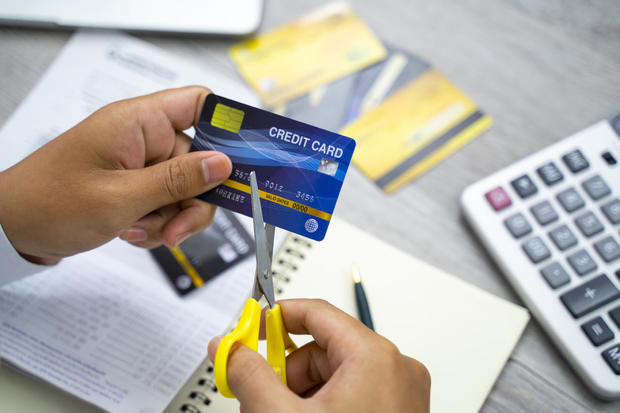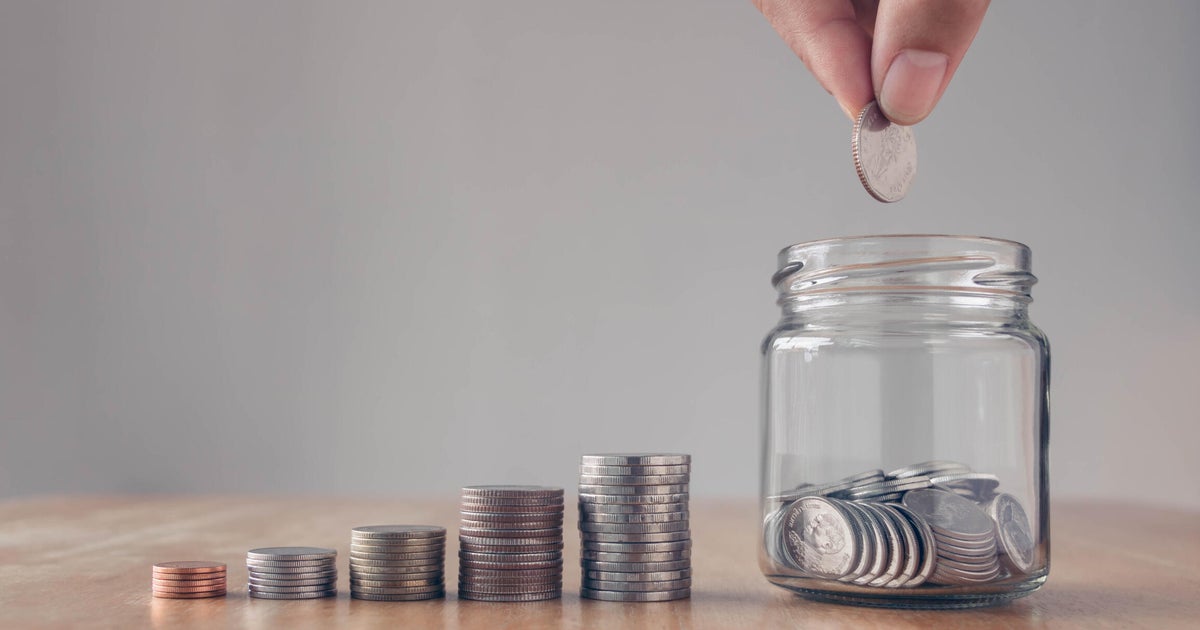Is credit card debt forgiveness a good idea? Experts weigh in
In the U.S., credit card debt is commonplace. In fact, household credit card debt across the country totaled $1.13 trillion during the fourth quarter of 2023. And, credit card balances increased by $50 billion from Q3 to Q4 2023, according to the Federal Reserve.
And, while credit cards can be useful financial tools, they can also cause financial hardship if you aren't careful. After all, credit card accounts often have high interest rates and minimum payment structures that make it difficult to pay down what you owe.
But if you're struggling with credit card debt, you have options for debt relief, including credit card debt forgiveness. With these programs, debt relief experts negotiate with your lenders to get them to accept a lesser amount of money than what you owe. If the program is successful, your lenders will forgive a portion of your debt — but are these programs a good idea? Here's what the experts say.
Find out how a credit card debt forgiveness program can help you achieve debt relief now.
Is credit card debt forgiveness a good idea? Experts weigh in
Credit card debt forgiveness, "also known as debt negotiation or debt settlement, involves negotiating with creditors to reduce the outstanding balance on your credit card debt," says Jordan Mangaliman, CEO of Goldline Financial Services. "While it can offer relief from overwhelming debt burdens, it also comes with pros and cons."
Pros of credit card debt forgiveness
Here are the pros to be aware of with credit card debt forgiveness:
Potential debt reduction
"The primary advantage of debt settlement is that it can significantly reduce the total amount of debt you owe," says Mangaliman. "Creditors may agree to accept a lump sum payment that is less than the total balance owed, allowing you to pay off your debt for less than you originally owed."
That, in turn, can make it easier to pay off what you owe in a timely manner.
"You will be able to settle for less than what is owed," says Brandon Robinson, president and founder of JBR Associates. "Sometimes considerably less."
Learn more about your credit card debt forgiveness options today.
An expedited resolution
"Debt settlement can provide a quicker resolution to your debt problems compared to other debt relief options like debt consolidation or repayment plans," says Mangaliman. "Once an agreement is reached, you can typically resolve your debts within a few months to a few years, depending on your financial situation."
How quickly you can pay off what you owe, however, depends on how much you can afford to pay each month toward your remaining debts.
"After settling your debts, you'll typically make a single lump sum payment or a series of payments to satisfy the negotiated settlement," says Mangaliman. "This can simplify your finances and make it easier to manage your debt payments."
Bankruptcy avoidance
"The user will be able to avoid a bankruptcy by getting the debt balance off the personal ledger sheet," says Robinson.
And that makes credit card debt forgiveness a good alternative to bankruptcy in many cases.
"Debt settlement can be a viable alternative to bankruptcy for individuals who are unable to repay their debts," says Mangaliman. "By negotiating with creditors to settle debts, you may be able to avoid the long-term negative consequences associated with bankruptcy, such as damage to your credit score and loss of assets."
Cons of credit card debt forgiveness
And here are the potential negatives to be aware of with credit card debt forgiveness:
Credit score impact
Credit card debt forgiveness "can have a significant negative impact on your credit score," says Mangaliman. "When you settle a debt for less than the full amount owed, it will typically be reported to credit bureaus as 'settled' or 'settled for less than the full amount,' which can lower your credit score and remain on your credit report for several years."
The process of debt settlement also generally requires you to stop making payments to your lenders during negotiations, and the payment hold can continue for extended periods as you save for your settlement. These missed payments are also likely to have a negative impact on your credit score.
Potential tax implications
And, if a portion of your credit card debt is forgiven, it can also impact what you owe on your taxes.
"The IRS considers forgiven debt as taxable income, which means you have to pay taxes on the amount of debt forgiven through settlement," says Mangaliman. "This can result in a substantial tax bill, depending on the amount of debt forgiven and your tax bracket."
Other potential repercussions
There may also be other potential repercussions to consider in terms of the credit card debt forgiveness process. For example, your creditors aren't required to agree to a settlement — and not all negotiations are successful.
"You may not get approval from the creditors to lower the amount owed," says Robinson. "Some creditors may not negotiate a settlement with you."
That, in turn, could result in legal action against you.
"While negotiating with creditors, there's a risk that creditors may choose to pursue legal action against you to collect the full amount owed," says Mangaliman. "Although this is not common, it's a possibility that you should be aware of before pursuing debt settlement."
Is credit card debt forgiveness a good idea?
In many cases, one of the best ways to determine whether credit card debt forgiveness makes sense is to consider the pros and cons and understand how it could impact your financial goals.
Credit card debt forgiveness programs are usually best for borrowers who are struggling with more credit card debt than they can pay off within the next few years. If that's you, it could make sense to reach out to a debt relief expert for help.
The bottom line
Credit card debt forgiveness services can be a big help to those who are struggling to pay off what they owe — but they won't be the right fit for every borrower. If you're unsure whether this type of program makes sense for you, it may help to consider the potential benefits and downsides to this type of assistance to ensure it aligns with your financial goals — and that you can make the most of the services offered to you with these programs.




